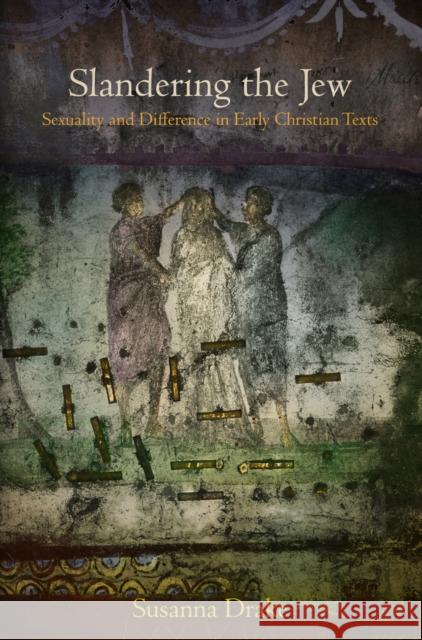Slandering the Jew: Sexuality and Difference in Early Christian Texts » książka
Slandering the Jew: Sexuality and Difference in Early Christian Texts
ISBN-13: 9780812245202 / Angielski / Twarda / 2013 / 184 str.
As Christian leaders in the first through fifth centuries embraced ascetic interpretations of the Bible and practices of sexual renunciation, sexual slander such as the accusations Paul leveled against wayward Gentiles in the New Testament played a pivotal role in the formation of early Christian identity. In particular, the imagined construct of the lascivious, literal-minded Jew served as a convenient foil to the chaste Christian ideal. Susanna Drake examines representations of Jewish sexuality in early Christian writings that use accusations of carnality, fleshliness, bestiality, and licentiousness as strategies to differentiate the "spiritual" Christian from the "carnal" Jew. Church fathers such as Justin Martyr, Hippolytus of Rome, Origen of Alexandria, and John Chrysostom portrayed Jewish men variously as dangerously hypersexual, at times literally seducing virtuous Christians into heresy, or as weak and effeminate, unable to control bodily impulses or govern their wives.
As Drake shows, these carnal caricatures served not only to emphasize religious difference between Christians and Jews but also to justify increased legal constraints and violent acts against Jews as the interests of Christian leaders began to dovetail with the interests of the empire. Placing Christian representations of Jews at the root of the destruction of synagogues and mobbing of Jewish communities in the late fourth and early fifth centuries, "Slandering the Jew" casts new light on the intersections of sexuality, violence, representation, and religious identity."











